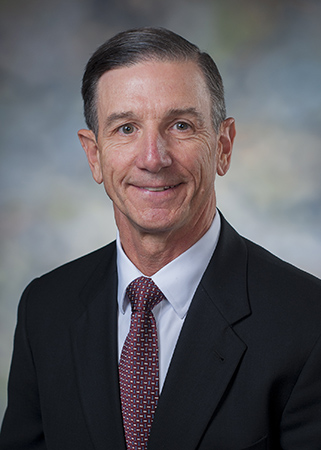Q&A with Dr. Byron C. Hepburn, Director of the Military Health Institute

Q: When did the School of Health Professions begin partnering with the Military Health Institute?
A: The Military Health Institute (MHI) has partnered with the School of Health Professions since its inception. MHI was founded in 2014 as a way to build on the legacy of military partnership with the UT Health San Antonio. Beyond being located in San Antonio, known as Military City, USA, there are a number of faculty, staff and students with a military background on campus. The University also has a long-standing history of Department of Defense and Department of Veterans Affairs funded research. Currently, partnerships total in excess of $12 million dollars of grant funds during the most recent fiscal year.
Q: Would you describe the MHI as the first of its kind or one of few programs of its kind? What makes MHI a good fit for the Health Science Center?
A: MHI is among the first of its kind, with similar organizations at Boston University and the University of Pittsburgh. MHI is also different in that our alliances with the military are at the local and national levels.
MHI also facilitates DoD/VA collaboration across the UT System through the System’s National Strategic Advisory Group. Additionally, the MHI partners with academic, industry, and Veteran Support Organizations dedicated to military health at the local and national levels.
Q: How will the MHI mission be served through programs with the School of Health Professions?
A: The School of Health Professions plays a unique role in being able to serve service members, veterans, and their families with occupational, physical and other therapies. MHI is happy to facilitate collaborations with the VA and Department of Defense.
Q: Please share any other information you would want prospective students to know about the MHI as it relates to the School of Health Professions.
A: The Military Health Interest Group, a student-run organization that fosters collaboration and camaraderie on campus, would like to welcome students from all the schools who have an interest in military health to participate.
At the faculty level, we have worked with John Phelps (Emergency Health Sciences) in the area of military Tactical Combat Casualty Care (TCCC). Advances in this field are also beneficial in training civilian emergency health providers at the city and state level. Another area touched by military health is the US Army’s flight paramedic program.
There are many opportunities for research related to military health among occupational and physical therapists with an interest in human performance and resiliency. We encourage all students interested in military health programs or research to contact us at MHI@uthscsa.edu.